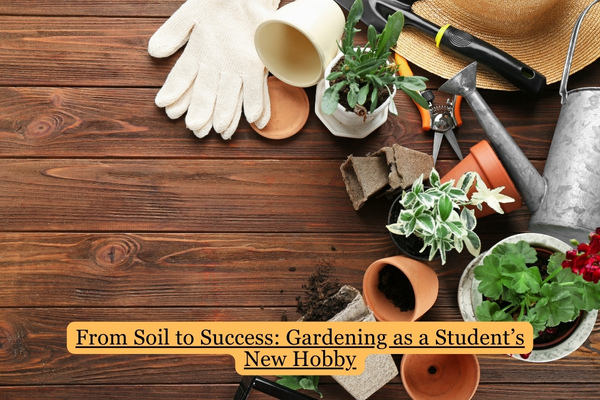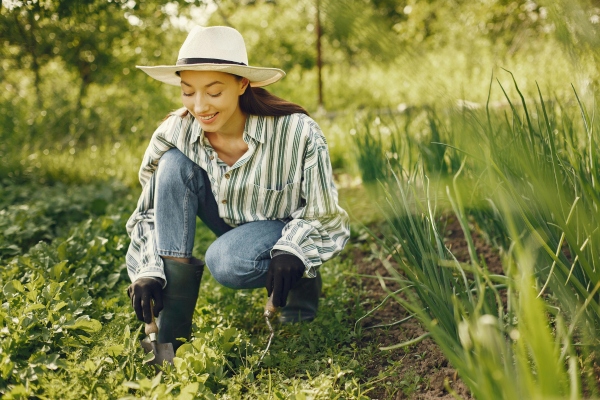

Balancing school, studying, and assignments can be overwhelming for students. With tight deadlines and constant homework, finding a hobby that provides relaxation while enhancing learning can be challenging. Gardening, however, offers a unique opportunity to reduce stress, boost productivity, and develop essential life skills. By engaging with nature, students can cultivate patience, responsibility, and mindfulness—qualities that contribute to both academic and personal growth.
Many students struggle with maintaining focus due to the demands of school and extracurricular activities. With the pressure of assignments and homework, stress levels can rise, negatively impacting both mental and physical health. Gardening provides a therapeutic escape, allowing students to disconnect from screens and academic stressors. The simple act of planting and nurturing a garden fosters a sense of accomplishment and relaxation, improving overall well-being.
Gardening also enhances learning by offering hands-on experiences in biology, environmental science, and sustainability. For students who prefer interactive learning, growing plants can reinforce classroom concepts in an engaging way. Whether experimenting with soil types, understanding plant nutrition, or tracking growth patterns, gardening turns theoretical knowledge into practical understanding. In addition, students can compare the ratings of our essay writers to ensure they have quality academic support while dedicating time to their new hobby.
Incorporating gardening into a student’s routine does not require a large backyard or expensive tools. Even small-scale projects like indoor plants, balcony gardens, or hydroponics can provide the same benefits. With proper planning and dedication, gardening can become a rewarding habit that complements academic success and personal development.

With the constant demands of school, students often experience stress and anxiety. Gardening provides a natural way to unwind, reducing cortisol levels and promoting relaxation. Being surrounded by greenery and fresh air has been proven to improve mood and mental clarity, making it easier for students to focus on their studies.
Additionally, engaging in gardening activities like watering, pruning, and planting helps develop mindfulness. These small, repetitive tasks encourage students to be present in the moment, reducing feelings of overwhelm caused by schoolwork and assignments.
Gardening teaches patience and discipline, essential qualities for students juggling multiple academic responsibilities. Taking care of plants requires consistency, much like completing homework or studying for exams. Developing a routine through gardening can help students structure their study habits more effectively.
Moreover, stepping away from screens and textbooks to spend time with plants can lead to increased concentration when returning to assignments. A short gardening break can refresh the mind, preventing burnout and boosting overall productivity.
Gardening is an excellent way to reinforce lessons learned in school, particularly in subjects like biology, chemistry, and environmental science. By growing plants, students can directly observe biological processes such as photosynthesis, soil composition, and nutrient cycles. This hands-on learning makes abstract scientific concepts more tangible and memorable.
Sustainability is another crucial aspect of gardening. Students who engage in eco-friendly gardening practices, such as composting and water conservation, develop a greater appreciation for environmental responsibility. Learning how to grow food sustainably can also contribute to a healthier lifestyle while reducing their ecological footprint.
Gardening requires troubleshooting skills, as plants may face challenges such as pests, diseases, or poor soil conditions. Students must learn to diagnose problems and experiment with solutions—an approach similar to tackling complex school assignments. These problem-solving experiences build resilience and adaptability, valuable skills for both academic and real-world challenges.
Students with limited time and space should start with low-maintenance plants. Some great options include:
Students don’t need a large outdoor space to start gardening. Here are a few beginner-friendly setups:
With a busy school schedule, students may worry about fitting gardening into their routine. Here are some tips to maintain balance:
Gardening doesn’t have to be a solo activity. Students can make it more enjoyable by:
Gardening is more than just a hobby, it’s a powerful tool for enhancing learning, reducing stress, and fostering personal growth. Students who incorporate gardening into their routines can experience improved focus, productivity, and overall well-being. By creating a balance between studies and a hands-on, rewarding activity, students can develop essential life skills that benefit them both academically and personally.
Incorporating gardening into student life can be a game-changer. If you’re looking for ways to manage stress while staying on top of your assignments, consider starting a garden and exploring its numerous benefits.

Don't let aphids, slugs, and caterpillars ruin another plant. Take back control with simple, natural methods that actually work.